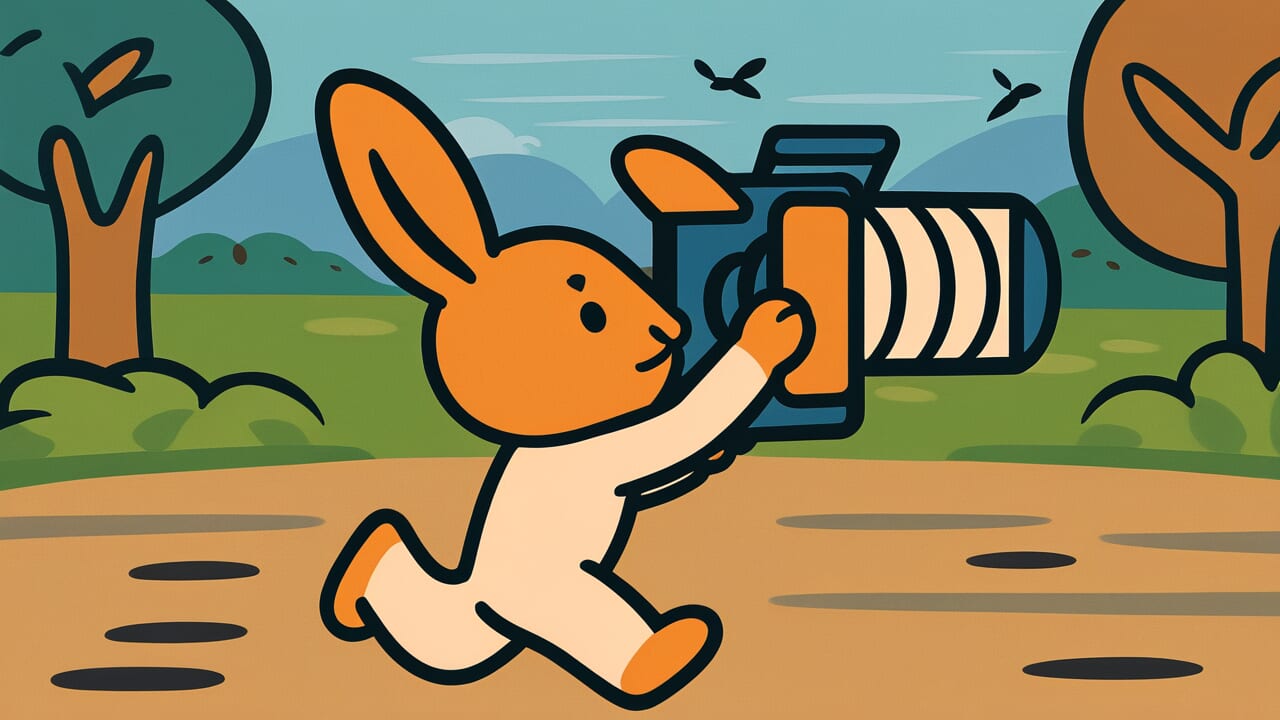How to Read “first catch your hare”
First catch your hare
[FIRST kach yoor HAIR]
All words use standard pronunciation.
Meaning of “first catch your hare”
Simply put, this proverb means you should secure what you need before making plans that depend on having it.
The saying comes from old cooking advice. Before you can cook a hare, you must first catch one. You cannot start preparing a meal without the main ingredient. The proverb uses this simple cooking truth to teach a bigger lesson about planning.
Today we use this wisdom in many situations. Someone might dream of starting a business before they have any money saved. A student might plan their college celebration before taking the final exam. A person might promise to help others before checking if they are actually free that day.
What makes this proverb interesting is how often people ignore it. We naturally like to plan ahead and imagine good outcomes. But this saying reminds us that hope alone is not enough. Real success requires getting the basics right first, even when that feels boring or difficult.
Origin and Etymology
The exact origin is unknown, but this proverb has been used in English for several centuries. It appears to come from practical cooking advice that became a general life lesson. Early versions of the saying focused on hunting and food preparation.
During earlier times, catching wild animals like hares was a real challenge for many families. Hunting required skill, patience, and luck. People could not simply go to a store to buy meat. This made the advice very practical and meaningful for daily survival.
The saying spread because it captured a universal truth about preparation. As society changed, people applied the same logic to money, work, and relationships. The basic wisdom remained useful even when most people stopped hunting for their food. Today it appears in many forms across different languages and cultures.
Interesting Facts
The word “hare” comes from Old English and refers to a wild rabbit-like animal that runs very fast. Hares were common game animals in Europe and provided an important source of protein for many families.
This proverb uses a technique called “concrete to abstract thinking.” It starts with a specific, physical example that everyone can understand, then applies that logic to more general situations.
The phrase structure follows a common pattern in English proverbs where the first word gives the key instruction. Starting with “first” immediately tells the listener about proper order and timing.
Usage Examples
- Manager to employee: “You’re already planning the launch party, but we haven’t gotten approval for the project yet – first catch your hare.”
- Parent to teenager: “You’re picking out dorm decorations when you haven’t even applied to college – first catch your hare.”
Universal Wisdom
This proverb reveals a fundamental tension in human psychology between our planning minds and our wishful thinking. Humans are unique among animals in our ability to imagine complex future scenarios, but this gift often leads us astray when we mistake imagination for reality.
Our brains evolved to help us survive by thinking ahead, but they also developed powerful systems for hope and optimism. These systems helped our ancestors keep trying during difficult times. However, they can trick us into believing that wanting something badly enough makes it more likely to happen. We start building elaborate plans on foundations that do not yet exist.
The deeper wisdom here touches on the relationship between control and acceptance. We can control our preparation and effort, but we cannot control outcomes. This proverb teaches us to focus our energy on the parts we can actually influence. It suggests that true confidence comes not from positive thinking, but from having solid ground beneath our feet. When we catch our hare first, we can cook with genuine excitement rather than nervous hope.
When AI Hears This
The more detailed our future plans become, the less we question their starting points. Humans build elaborate mental towers of “what happens next” while ignoring shaky foundations. Each added layer of planning feels like progress toward the goal. But really, we’re just getting further from reality with every assumption.
This happens because detailed planning feels productive and safe. Our brains reward us for thinking through complex sequences of events. The mental effort tricks us into believing we’ve already solved the hard parts. We confuse the work of imagining with the work of achieving. Planning becomes a substitute for facing uncomfortable uncertainties.
What’s remarkable is how this flaw might actually help humans survive. Detailed future planning motivates action even when success seems unlikely. The overconfidence pushes people to attempt difficult things they might otherwise avoid. Sometimes you need to believe in catching the hare before you can muster the energy to chase it.
Lessons for Today
Living with this wisdom requires developing what might be called “foundation thinking.” This means learning to spot the difference between what we have and what we hope to have. Before making any plan, we can ask ourselves what essential elements must be in place first. This approach helps us avoid the disappointment that comes from building on assumptions.
In relationships and teamwork, this wisdom helps us make promises we can actually keep. Instead of agreeing to things based on what might happen, we can commit based on current reality. This builds trust because others learn they can count on us. It also reduces stress because we are not constantly scrambling to make impossible situations work.
At a larger scale, this principle helps groups and organizations stay grounded. Teams that catch their hare first spend less time in crisis mode and more time making real progress. They may move more slowly at first, but they build momentum that lasts. The key insight is that this approach is not about being negative or limiting dreams. It is about creating the strongest possible foundation for those dreams to become real.



Comments